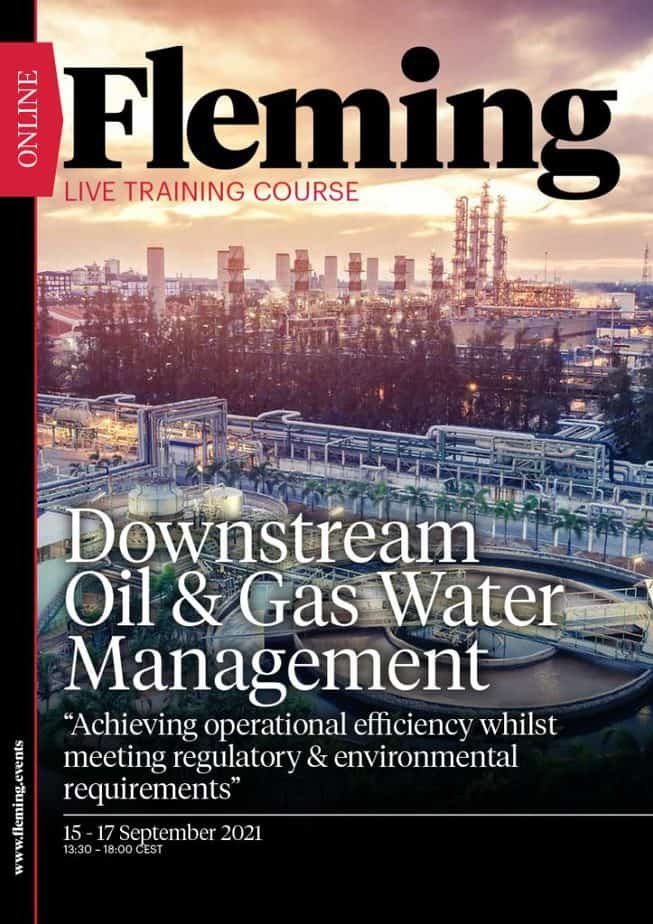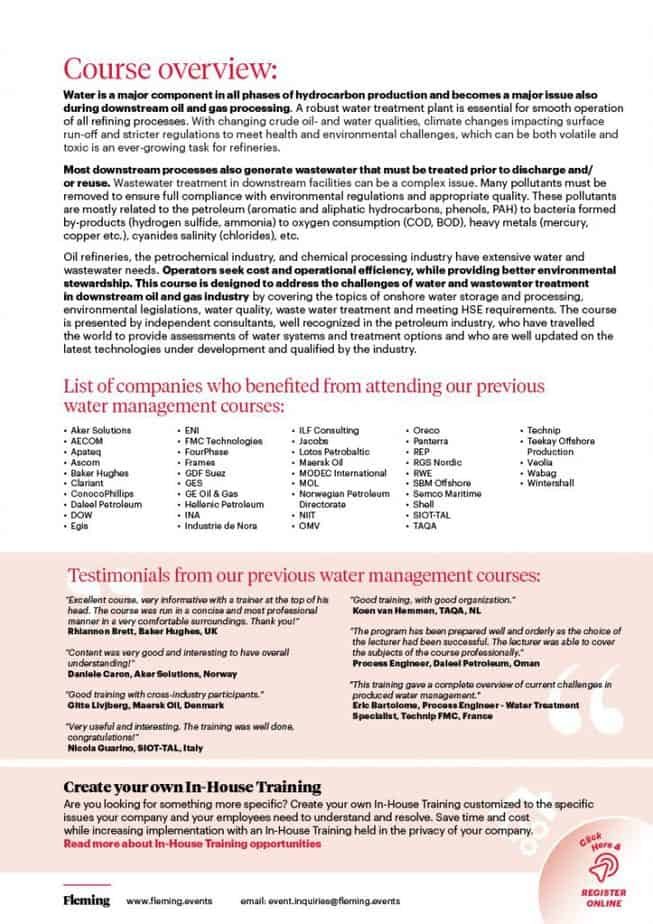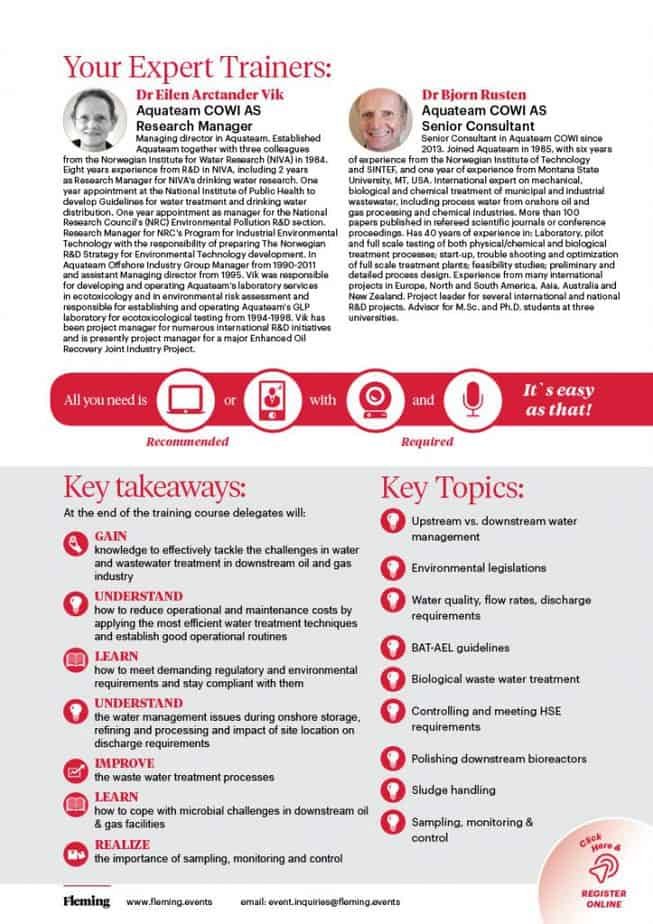Course description
Water is a major component in all phases of hydrocarbon production and becomes a major issue also during downstream oil and gas processing. A robust water treatment plant is essential for smooth operation of all refining processes. With changing crude oil- and water qualities, climate changes impacting surface run-off and stricter regulations to meet health and environmental challenges, which can be both volatile and toxic is an ever-growing task for refineries. Most downstream processes also generate wastewater that must be treated prior to discharge and/ or reuse. Wastewater treatment in downstream facilities can be a complex issue. Many pollutants must be removed to ensure full compliance with environmental regulations and appropriate quality. These pollutants are mostly related to the petroleum (aromatic and aliphatic hydrocarbons, phenols, PAH) to bacteria formed by-products (hydrogen sulfide, ammonia) to oxygen consumption (COD, BOD), heavy metals (mercury, copper etc.), cyanides salinity (chlorides), etc. Oil refineries, the petrochemical industry, and chemical processing industry have extensive water and wastewater needs. Operators seek cost and operational efficiency, while providing better environmental stewardship. This course is designed to address the challenges of water and wastewater treatment in downstream oil and gas industry by covering the topics of onshore water storage and processing, environmental legislations, water quality, waste water treatment and meeting HSE requirements. The course is presented by independent consultants, well recognized in the petroleum industry, who have travelled the world to provide assessments of water systems and treatment options and who are well updated on the latest technologies under development and qualified by the industry.






